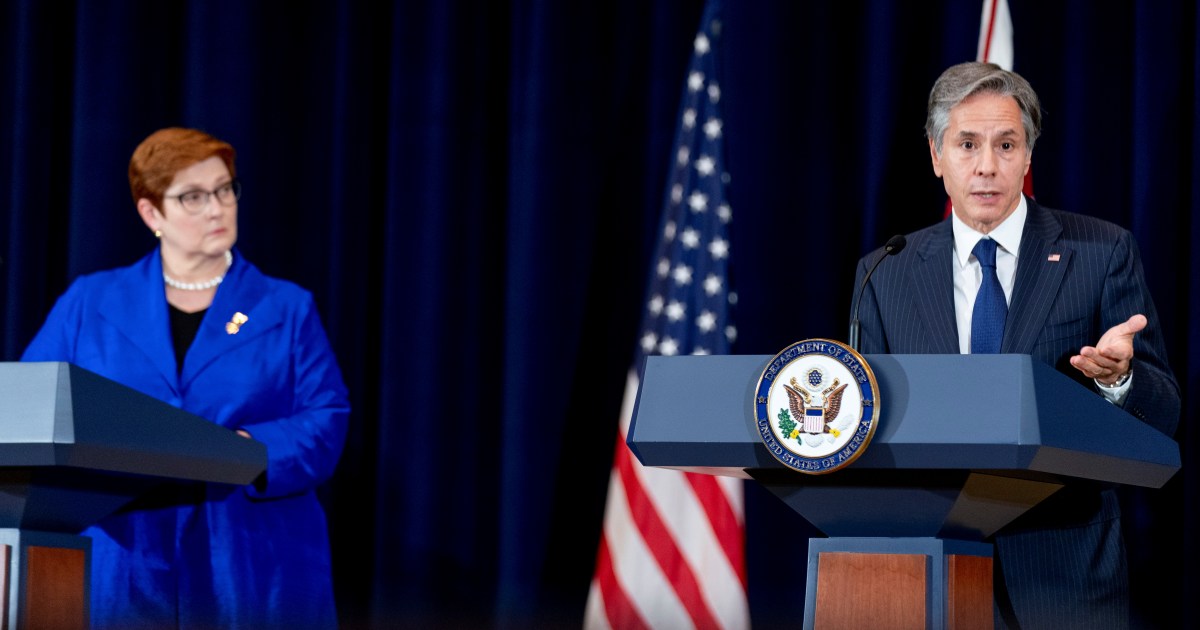The British Economist magazine said that the tripartite defense agreement signed last week between the United States, Australia and Britain, known as the Aukus deal, is one of the rare occasions that brought about a profound strategic shift in the geopolitics of the world.
This agreement is similar in size and repercussions - according to the magazine - to other prominent historical events such as the fall of the Berlin Wall in 1989, US President Richard Nixon's visit to China in 1972, and the Suez Canal crisis in 1956.
The agreement includes a wide range of cooperation in the diplomatic and technological fields between the three countries, but in essence it is an agreement to start consultations in order to help Australia acquire a fleet of nuclear-powered submarines, even though it is not a nuclear country.
The deal caused Australia to cancel a tens of billions-dollar contract signed in 2016 with France for diesel-electric submarines, causing an angry reaction from Paris, whose Foreign Minister Jean-Yves Le Drian called the agreement a "stab in the back", as the president summoned. French Emmanuel Macron, on September 17, his country's ambassadors to Washington and Canberra for consultations.
For the United States, the deal is the most dramatic step yet taken in its determination to confront what it sees as a growing threat from China, particularly in the Pacific.
Its participation in its best military technology (nuclear submarine technology) with its second ally in 63 years (after Britain) indicates its strong and long-term commitment to what it calls a "free and open Indo-Pacific."
"The great importance of this agreement is that the United States is betting more on its allies, and its allies are also betting more on it, and unfortunately France is just collateral damage," says Michael Volelov of the Lowy Institute - a think tank in Sydney. ".
Britain is considered - according to the magazine - the least important party in the signed agreement, which was confirmed by the position of Paris, which did not summon its ambassador in London to it for consultations, as it did with its ambassadors in Washington and Canberra, to the extent that the French Foreign Minister described Britain as the "third wheel" in the agreement.
Britain is global
But the deal clarifies for British Prime Minister Boris Johnson - adds The Economist - his country's changing role in the world, and is in perfect harmony with London's post-Brexit efforts to promote a "global Britain", and it also gives meaning to "the inclinations towards the Indo-Pacific" that It was adopted by a comprehensive review of British foreign and defense policy last March.
As for the French, what happened confirms what they consider to be deep facts in international relations, especially the idea that Europe needs more "strategic autonomy" so as not to be overly dependent on America, although the silence of France's European partners casts doubt on the strength and seriousness of France. Such autonomy.

